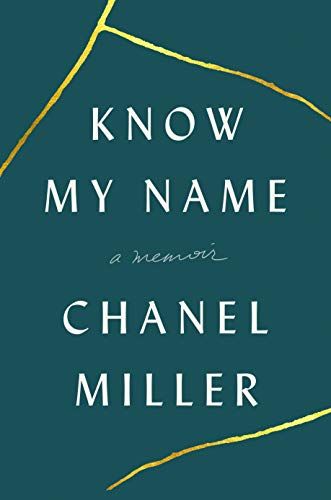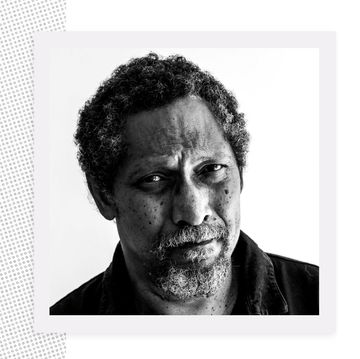Imagine if the worst thing that ever happened to you became the only thing people knew about you. The beige cardigan you wore to the party that night, picked out thoughtfully and then forever ruined by what happened, discussed in detail by million of strangers. They knew about the way you were found unconscious, the way he tried to run away when you were finally discovered, the dirt that was found inside your body afterwards. They knew about all this—the most intimate, painful details of your life—but they still didn't know your name.
Now in her new memoir Know My Name, Chanel Miller not only comes forward as the woman on the other side of the much-talked-about Stanford sexual assault case, she also delivers a searing examination of the criminal justice system and the devastating ways in which sexual assault victims are treated in the United States.
Until earlier this month, most didn't know Miller's identity, but they did know about her case. In January 2015, Brock Turner sexually assaulted Miller behind a dumpster while she was unconscious. Two Stanford students found them, tackled Turner to the ground as he tried to run away, and later served as witnesses. Turner's crime, his lenient sentence, the outrage that followed—these are all facts. In Know My Name, Miller tells the story, taking us back to the start of 2015 and through the trial that upended her life and stripped her of her personhood.
She takes us through everything that followed, through the presidential election and the Access Hollywood tape, through the accusations against Harvey Weinstein, the broad resurgence of #MeToo, the Bill Cosby trials, the Larry Nassar trials, the confirmation of Supreme Court Justice Brett Kavanaugh. But also through the summer art class she took, the comedy club she joined in Philadelphia, the nights she spent sleeping next to her sister for comfort, the letters of support she received from total strangers. In its rare honesty and its small details, Know My Name is both an open wound and a salve, a quiet cry and the loudest scream.
As Miller describes the night of the attack, the investigation that followed, and how she found out the details of her own assault when she stumbled upon the news online, she allows us all to bare witness to her revictimization, perpetrated by a system that was never built to help her heal. We read how her version of events got pulled apart by lawyers, and how she was forced to recall every minuscule and seemingly unimportant detail from that night and her personal life, including her relationship with her boyfriend and her experience with alcohol and partying, while Turner's athletic abilities were published in the paper. "My pain was never more valuable than his potential," she writes. We see her decisions questioned and her character flattened: "I wondered how in an instant my identity had been reduced to the blacked-out and raped woman."
And as the details of the case were broadcasted across the country, accompanied by commenters who sought to blame Miller for the assault, she danced between two different identities.
"How did other victims manage this back-and-forth between worlds, the rotation of selves?" she writes. "You can't fawn over your coworker's photos of Maui by morning, slip away to battle your rapist by noon. It required two entirely different modes of being; different worries, rules, bosses, emotions."
At the end of the trial, Turner was found guilty of three counts of felony sexual assault, a verdict that could have led to a sentencing of up to 14 years in prison, according to the New York Times. Instead, he was sentenced to six months in county jail and only served three.
"The way I saw it," she wrote of the trial, "my side was going to convince the jury that the big yellow thing in the sky is the sun. His side had to convince the jury that it's an egg yolk. Even the most eminent attorney would not be able to change the fact that it is a massive blazing star, not a ludicrous floating egg. But I had yet to understand the system. If you pay enough money, if you say the right thing, if you take enough time to weaken and dilute the truth, the sun could slowly begin to look like an egg. Not only was this possible, it happens all the time."
But Miller's memoir is more than a delicate account of all that was taken from her that January night—a list that includes her spontaneity and her sexual freedom—and her slow journey to get them back. Miller also makes ample space for the people—in the hospital, in the courtroom, in her family—who held her hand and helped her survive. The response to her impact statement was overwhelming and positive, she writes; Hillary Clinton wrote in her book, What Happened, that it helped inspire her concession speech. Miller reminds us that the judge who sentenced Turner was later recalled by voters, the result of hard work by volunteers who never knew her name. After the case, California Governor Jerry Brown signed a bill into law that created mandatory minimum sentences for sexual assault cases. California expanded its definition of rape. Know My Name is more than an indictment, though it is a successful and moving one. It is also an outstretched hand, inviting you to fight alongside her.
"I wrote because the court system is slow as a snail, and victims are forced to spend so much time fighting, rather than spending their days creating, drawing, cooking," she says. "I wrote to expose the brutality of entitlement, gender violence, and class privilege in our society. But I would be failing you if you walked away from this book untouched by humanity ... I wrote, most of all, to tell you I have seen how good the world can be."
When the book was first announced, the New York Times reported that the cover of the book was inspired by the Japanese art of kintsugi, or "golden repair." This art is created by mending broken pottery pieces using lacquer and powdered gold, creating something beautiful out of something broken. But the art, purposefully, still shows the cracks. The cover is meant to represent Miller's recovery from the assault and the trial—meant to show us exactly how things break, and also how the world can help piece them back together.
If you've been sexually assaulted, you can reach the National Sexual Assault Hotline 24/7 by phone (800.656.HOPE) or online.














